Stress Management Strategies for Addicts in Recovery

Stress Management Strategies for Addicts in Recovery
One of the most formidable adversaries in addiction recovery is stress. Stress, whether from external pressures or internal struggles, can trigger cravings and threaten the stability of recovery. For individuals in addiction recovery, effectively managing stress is not just a matter of well-being but a crucial aspect of maintaining sobriety and preventing relapse.
Understanding the Stress-Addiction Connection: To comprehend the significance of stress management in addiction recovery, it’s essential to recognize the intricate interplay between stress and addictive behaviors. Addiction often arises as a maladaptive coping mechanism to deal with stressors, whether they stem from trauma, emotional distress, or environmental factors. Substance use or compulsive behaviors provide temporary relief from stress, but in the long run, exacerbate its effects and perpetuate a vicious cycle of addiction.
Moreover, addiction itself alters brain chemistry and stress response systems, making individuals more susceptible to stressors and less equipped to handle them without resorting to substance use. Consequently, stress becomes a potent trigger for cravings and relapse, posing a formidable obstacle to sustained recovery.
Strategies for Stress Management in Addiction Recovery:
- Mindfulness and Meditation: Cultivating mindfulness through meditation practices can enhance self-awareness, reduce reactivity to stressors, and promote emotional resilience. Mindfulness techniques such as deep breathing, body scans, and mindful observation help individuals stay grounded in the present moment, enabling them to respond to stressors with clarity and equanimity.
- Healthy Lifestyle Choices: Engaging in regular exercise, maintaining a balanced diet, and prioritizing adequate sleep are fundamental pillars of stress management in recovery. Physical activity not only alleviates stress by releasing endorphins but also improves mood and enhances overall well-being. Similarly, nutritious food and sufficient rest support optimal brain function and emotional regulation, fortifying individuals against the destabilizing effects of stress.
- Social Support Networks: Building a strong support system of peers, friends, family, and professionals is indispensable for navigating the challenges of recovery. Connecting with others who understand the journey of addiction and recovery fosters a sense of belonging and validation, reducing feelings of isolation and stress. Support groups, such as Alcoholics Anonymous or Narcotics Anonymous, offer invaluable camaraderie, encouragement, and practical guidance in managing stress without resorting to substances.
- Cognitive-Behavioral Techniques: Cognitive-behavioral therapy (CBT) equips individuals with practical skills to identify and challenge negative thought patterns and maladaptive behaviors associated with stress. By restructuring cognitive distortions and developing healthier coping mechanisms, CBT empowers individuals to build resilience and cope effectively with stressors without relying on addictive substances or behaviors.
- Stress Reduction Techniques: Incorporating relaxation techniques such as deep breathing exercises, progressive muscle relaxation, and guided imagery into daily routines can provide immediate relief from stress and anxiety. These practices activate the body’s relaxation response, counteracting the physiological effects of stress and promoting a state of calmness and tranquility.
- Self-Care and Leisure Activities: Prioritizing self-care activities and engaging in hobbies and leisure pursuits that bring joy and fulfillment are vital aspects of stress management in recovery. Whether it’s reading, painting, gardening, or spending time in nature, carving out time for activities that nourish the soul replenishes emotional reserves and buffers against the impact of stress.
- Mind-Body Practices: Integrative approaches such as yoga, tai chi, and qigong offer holistic pathways to stress reduction by harmonizing the mind, body, and spirit. These mind-body practices combine movement, breathwork, and mindfulness to promote relaxation, enhance self-awareness, and cultivate inner peace. By fostering a sense of balance and harmony, mind-body practices serve as powerful antidotes to the discordant effects of stress on the recovery journey.
- Therapeutic Interventions: Seeking professional help through individual therapy, group counseling, or specialized addiction treatment programs equips individuals with tailored strategies to address underlying issues contributing to stress and addiction. Therapists can provide personalized guidance, emotional support, and evidence-based interventions to help individuals develop healthier coping mechanisms, resolve past traumas, and build resilience in the face of stressors.
- Rehabilitation Treatment Programs: In some cases, individuals may find that their stress levels are overwhelming, and their addiction cravings are intensifying despite implementing various coping strategies. During such times, entering into an outpatient or even inpatient rehabilitation treatment program may be necessary. These programs offer structured environments where individuals can receive intensive therapeutic support, medical supervision, and a comprehensive array of resources to address both addiction and underlying stressors. Inpatient programs provide round-the-clock care and a reprieve from external stressors, allowing individuals to focus entirely on their recovery journey. Outpatient programs, on the other hand, offer flexibility for individuals to attend therapy sessions and support groups while still maintaining their daily responsibilities. By committing to rehabilitation treatment, individuals can gain invaluable insights, learn coping skills, and receive the necessary support to effectively manage stress and sustain long-term sobriety.




